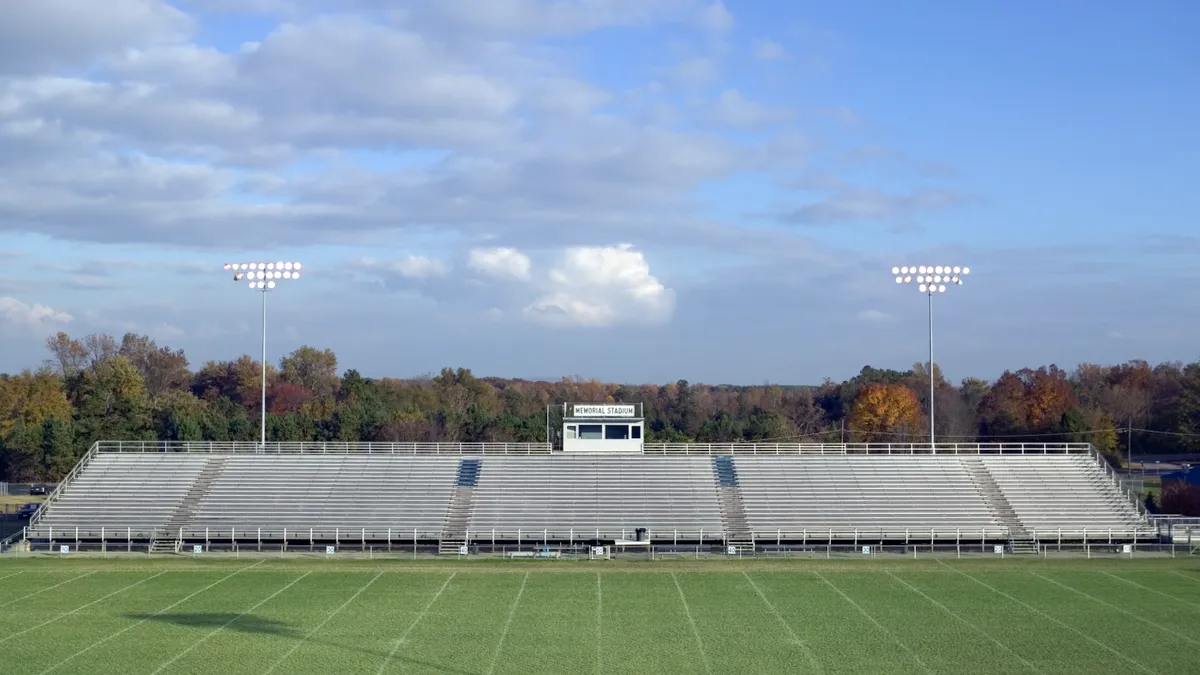Dive Brief:
- Unruly behavior at high school sports events is leading some schools to set stricter rules for fans attending games. It's also caused the National Federation of State High School Associations to launch a Bench Bad Behavior campaign to bring awareness that harassment and dangerous behavior is leading to a shortage of game officials and the canceling of games.
- In a video posted Oct. 12, the group's CEO, Karissa Niehoff, said parents and other fans have come out from the stands at games to attack referees and yell obscenities at officials. Fans also are tracking down officials after games to insult and throw objects at them. "The NFHS has declared that enough is enough," Niehoff said.
- As many rejoice in getting back on the field after pandemic-interrupted seasons, school leaders are growing concerned that increased bad behavior will reduce playing time for student athletes and punish well-intended fans.
Dive Insight:
Several school systems across the country have had to change game schedules and implement new attendance rules in response to increased unruly behavior or lack of officials.
Shortages of officials are causing schools in Virginia, Colorado and Oregon to move some football games to Thursday nights or Saturday afternoons, according to local news reports.
The Springfield School District in Missouri set out new football game attendance rules earlier this month due to more fans — and more unsupervised students — in the stands, according to the Springfield News-Leader. Students will not be allowed to leave the stands except to go to the bathroom or concession stand. All high school students will have to wear their school badges, and students in grades K-8 must be with a parent or supervisor.
In addition, students may not bring bags, purses or backpacks into the stadium and students from the visiting school have to sit in bleachers designated for their team.
“With attendance at our athletic events reaching pre-pandemic numbers, we have implemented these expectations to ensure a positive experience for everyone,” said Teresa Bledsoe, the district’s assistant director of communications, in an email. Bledsoe added the district has received positive feedback from parents, staff and other game attendees who have noticed an improvement from the changes.
In Montgomery County Public Schools in Maryland, a brawl at a football game earlier this season led to new game-day policies that require fans to stay seated in stands throughout the game. Students can attend their own schools' games with their student ID, but they'll need an adult chaperone to attend other games. No one will be allowed to reenter a game after leaving, according to the district's website.
The NFHS' Bench Bad Behavior campaign offers a toolkit for school leaders that includes state-specific web ads, print ads, flyers, parent-player contracts and more. Some announcements also encourage people to consider becoming a game official.
The organization earlier this year estimated that 50,000 high school officials had left their roles since the 2018-19 season, the last full school year before the pandemic. Although 50,000 to 60,000 people indicated interest in becoming officials from 2018 through 2022, not enough are actually meeting the demand.
There are about 200,000 officials nationally, according to Dana Pappas, NFHS director of officiating services, in a February statement.














